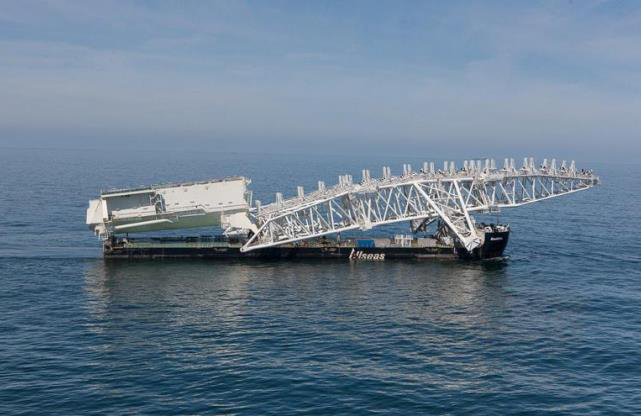Twój koszyk jest obecnie pusty!
Why a new offensive in Donbas is not taking place. Commentary for New Eastern Europe
Why did the gas war not break out in the autumn of last year? Why did a new offensive in Donbas not yet take place? The answer to these questions is the same as it was last year: the Russians do not have to use force to accomplish their goal in Ukraine – to stop…

Why did the gas war not break out in the autumn of last year? Why did a new offensive in Donbas not yet take place? The answer to these questions is the same as it was last year: the Russians do not have to use force to accomplish their goal in Ukraine – to stop its path to the West.
Despite remaining tensions in Donbas, Russia – weakened by sanctions – does not utilise its mercenaries or even the regular army to pacify Kyiv. Instead, it has chosen the economic argument. It again raises the issue of the three billion US dollar debt that was taken out by the former president of Ukraine, the ousted Viktor Yanukovych. This amount was a part of the first payment of a financial support programme that Russia promised Ukraine in exchange for its refusal to sign the Association Agreement with the European Union. As a result of the EuroMaidan and the change in Ukrainian government, Russia did not provide Ukraine with any further payments.
In exchange for agreeing to Russia support in 2013, Yanukovych also received a substantial reduction in the price of gas for Ukraine. However, this was cancelled after the revolution. The current discount provided by Russia to Ukraine is a result of the intervention of the European Commission, which secured favourable conditions for Ukrainians in a series of negotiations.
Although the Ukrainian government asked Russia to extend the period of the discount, which was granted in the autumn of 2014 due to the EU’s support, Gazprom traditionally reminded Kyiv that it had the outstanding 2013 Yanukovych debt. This is another element of pressure on Kyiv. The Ukrainians need to gather enough gas reserves in their storage facilities before the next heating season (autumn) in order to retain pressure in the gas pipelines essential for upholding the transit of gas to Europe. This means additional costs and additional burdens to the already strapped state budget. At the same time, the Russians continue to demand an immediate repayment of the 2013 debt to highlight Kyiv’s economic weakness as a consequence of its pro-western course.
Ukraine warned recently that it would implement a new law that will suspend the obligation of repayment of private foreign debts. It is meant to be an answer to the debt blackmail game played by Russia. The Kremlin already responded that this debt is not private, but public. And it is not only Russia that would be affected by this suspension – the EU and the International Monetary Fund are also counting on their loans being paid back one day.
Moscow has been adding fuel to the fire. CyberBerkut, a hacker hit squad allegedly supported by the Kremlin, had claimed that they breached the foreign debt department of the Ukrainian Ministry of Finance. They argue that according to the stolen and leaked documents, Kyiv has already lost its ability to manage its foreign debt and is going to lose its financial liquidity soon. In the context of the above information, such a leak in the mass media cannot be considered accidental.
Russia annexed Crimea and has been engaged in the fight with Ukrainians in Donbas. But its goal is not to enter Ukraine with their military, only to destabilise the situation in order to present Ukraine as a failed state. If the support of the West does not come, such a scenario may indeed become reality. And if Ukraine does not pass the critical reforms necessary, it will find out this scenario for itself.
Source: New Eastern Europe





Leave a Reply